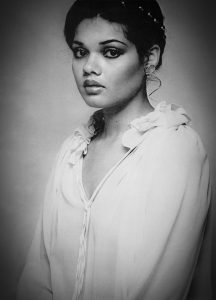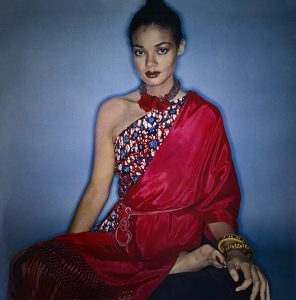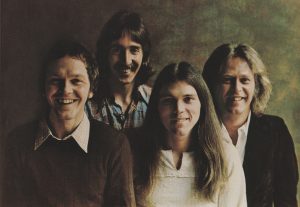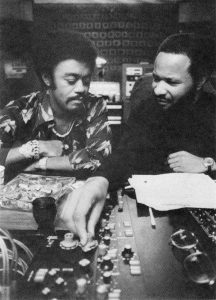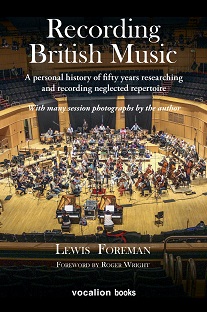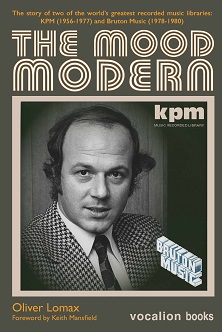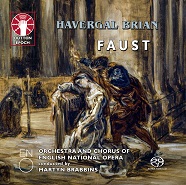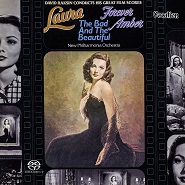With this month’s SACD release of Angela Bofill’s albums Angie and Angel of the Night, Vocalion continues to mine the vaults of Arista GRP, the legendary jazz-fusion/soul imprint established by pianist-arranger-composer Dave Grusin and recording engineer Larry Rosen.
Arista GRP grew out of Grusin/Rosen Productions, which the duo had set up in 1975 as an independent company. Thanks to their sterling work on albums by guitarist Earl Klugh, violinist Noel Pointer and singer Patti Austin, Grusin and Rosen’s company soon came to the attention of Arista Records’ President Clive Davis, who offered the pair a production deal. But as much as they had enjoyed operating on a freelance basis, Grusin and Rosen now desired more control over the product once they had played their part. “We wanted more of a logo deal,” Rosen asserted. “We wanted to establish our own name, because we felt there was an identity to what we were doing. And Clive said, ‘Fine.’” And so in 1978 the Arista GRP label was born, as a wholly owned subsidiary of Arista.
Arista GRP’s initial signing was flautist Dave Valentin (1952-2017). However, his Arista GRP debut, 1978’s Legends, became the label’s second release. The album that opened Arista GRP’s account would be devoted to the talents of a beautiful young singer named Angela Bofill, who at the time was also Valentin’s girlfriend. “Angela was brought to us by … Dave Valentin,” Grusin recalled. “He said, ‘Are you guys interested in a vocalist?’ We said, ‘Sure.’ So Dave brought Angela up to our offices. She presented us with a funky demo cassette she [had] made at home. We were both knocked out by the potential we heard on that cassette.”
Born in the Bronx in 1954 to a Cuban father and Puerto Rican mother, Angela Bofill grew up there and in the surrounding areas of Brooklyn, Harlem and Manhattan. Her father sang with the Afro-Cubans, the big band of legendary Latin jazz musician Machito, and the family home served as a meeting place for many of her father’s musician friends, an environment that encouraged and stimulated Bofill’s own love of music. She had soon developed a passion for the art of singing and began listening to the recordings of luminaries such as Billie Holiday, Celia Cruz, Aretha Franklin and Dionne Warwick.
Bofill went to Manhattan’s Hunter College High School, during which time she also sang in New York’s prestigious All-City High School Chorus. After graduating from Hunter College, she enrolled at the Manhattan School of Music and undertook her first professional work, touring as part of the chorus of the Dance Theatre of Harlem ballet company. She had soon met Dave Valentin, who was then with pianist Ricardo Marrero’s band. Valentin managed to get Bofill the job as the band’s lead singer, and she found herself touring the length and breadth of New York, playing at bar mitzvahs, weddings and various other public events.
The albums featured on Vocalion’s SACD reissue – Angie (1978) and Angel of the Night (1979) – are the only ones she made for Arista GRP, and show off her beautiful, almost operatic soprano voice in sets that include material by Bofill as well as by songwriters such as the Nickolas Ashford-Valerie Simpson partnership.
Among the titles on Angie are the beguiling Under the Moon and Over the Sky, where Bofill’s voice soars over a backdrop that blends elements of funk, Latin and R&B, and to which Dave Grusin contributes a sophisticated arrangement. The infectious Baby, I Need Your Love, written by Bofill, has a rhythmic feel very similar to that of Feel Like Making Love from Bob James’s classic 1974 CTI album, One – which is at least partly due to Richie Resnicoff (acoustic guitar) and Ralph MacDonald (percussion) having played on both recordings. And The Only Thing I Would Wish For, which shares the rhythmic feel of the aforementioned Baby, I Need Your Love, is based on an attractive chord sequence and dressed in another beautiful Dave Grusin orchestration,
The follow-up album, Angel of the Night, begins with I Try, a ballad Bofill had written in her late teens after breaking up with her then boyfriend, drummer Buddy Williams, who somewhat ironically plays on this recording! The tempo shifts up a gear for Thom Bell and Linda Creed’s soul staple People Make the World Go Round. First recorded by The Stylistics on their eponymous 1971 debut album, the song here receives an exciting disco arrangement, which sets the scene for Bofill to deliver the socially conscious lyrics. Angel of the Night, on the other hand, combines a driving funk groove with a message of love and hope, and it proved to be a winning combination because alongside I Try it became Bofill’s signature song.
This reissue includes a newly written essay detailing Angela Bofill’s career and the history of the Arista GRP label; and, of course, there’s an in-depth discussion of the music itself.
Immaculately recorded by Larry Rosen and immaculately remastered by Michael J. Dutton from the original stereo master tapes, both albums are presented here for the first time in high-resolution digital stereo, and sound better than ever before.
This Hybrid SACD is fully compatible with all CD players: the SACD layer contains the high-resolution stereo programme, the CD layer the standard 44.1kHz/16-bit CD stereo programme. The SACD layer is playable on any SACD-capable device, while the CD layer provides stereo playback on any standard CD player.
Oliver Lomax
From a group of country-rock pioneers, to a gospel phenomenon turned soul survivor, to a pair of Brazilian jazz-funk expats, the artists who make up Vocalion’s July 2018 SACD multi-channel release all forged their identities by fearlessly mixing genres, and in the process created music bigger than the sum of its parts. The quadraphonic sound revolution of the ’70s cut across nearly every musical style and genre, and this month’s release of six albums (across three hybrid SACDs) serves as a core sample that illustrates the breadth of the format’s musical diversity.
Kicking things off are two 1974 albums from Poco, Seven and Cantamos. Recorded immediately after the departure of founding member (and principal songwriter) Richie Furay, the albums find the group reduced to a quartet, but with its signature blend of country twang and rock ‘n’ roll power undiminished. Beginning with 1969’s Pickin’ Up the Pieces, the band recorded a string of superb albums that earned them critical acclaim and a loyal following, and blazed a trail for the likes of the Eagles, Pure Prairie League and Emmylou Harris. But breakthrough commercial success proved elusive, and frustration began to eat at the band, particularly Furay, who’d seen several of his former bandmates (including Neil Young, Stephen Stills, Jim Messina and Randy Meisner) enjoying with their subsequent groups the kind of superstar status he craved. The situation finally came to a head just before the release of 1973’s Crazy Eyes, with Furay exiting Poco to form ill-fated country-rock supergroup the Souther-Hillman-Furay Band, with songwriter J.D. Souther and former Byrd Chris Hillman. Ironically, Crazy Eyes would achieve a measure of the success Furay was after – one of Poco’s most successful albums, it spent six months in the Billboard pop charts, reaching No. 38.
The remaining members of the band – pedal steel guitarist Rusty Young, bassist Timothy B. Schmit, drummer George Grantham, and guitarist Paul Cotton – immediately resolved to carry on without replacing Furay, and their letter of intent, Seven, arrived in April 1974, a scant seven months after Crazy Eyes. The album found the band taking a decidedly harder-rocking direction, and while the move befuddled some fans and critics at the time, in retrospect the material on Seven provides an excellent counterpoint to some of Poco’s gentler fare. Songs like Cotton’s hard-charging Drivin’ Wheel (featuring a fantastic Grantham drum solo) and Schmit’s funk-rocker Just Call My Name typify Seven’s more aggressive sound, but the album is by no means a one-note affair. Cotton’s Faith in the Families meshes the band’s acoustic country-rock sound with a touch of Latin jazz, and Young turns in one of the band’s all-time classics in Rocky Mountain Breakdown. A country pickin’ hoedown, it features a mandolin cameo from returning Poco charter member Jim Messina, who brings along his Loggins & Messina bandmate Al Garth to contribute fiddle to the track. Young’s emergence as a songwriter would be one of the defining characteristics of Cantamos, released in November 1974, just six months after Seven. After the hard rock detour of its predecessor, the album found the band returning to the country-inflected sound of its earliest recordings, placing the emphasis on their soaring vocal harmonies, and pushing elements like pedal steel and mandolin to the fore. After contributing only one song to each of the band’s previous two albums, Young breaks out on Cantamos, delivering three of the album’s finest tracks including the opener, Sagebrush Serenade, which takes a thousand-mile journey from its meditative acoustic beginnings to the chicken pickin’ showdown of its conclusion. Elsewhere, Cotton provides the album with its requisite (although slightly dialled back) rock quotient on songs like the anti-Manifest Destiny treatise Western Waterloo and the galloping One Horse Blue, while Schmit turns in a pair of country classics in Bitter Blue and Whatever Happened to Your Smile.
Both Seven and Cantamos boast quadraphonic mixes by the team of Harold J. Kleiner and Don Young, a duo with more pop and rock quad remix credits to their names than anyone in the entire industry. Their combined experience shines through on these two demonstration-quality mixes – out of print for nearly forty years, they make their high-resolution digital debut on this double-album compilation, along with their stereo counterparts, which also see their first high-resolution availability as part of this release.
Across a career that spanned more than five decades, there seemingly wasn’t a style of music with which vocalist Johnnie Taylor couldn’t find success, thanks to his powerful delivery and uncanny ability to take any song and make it his own. After singing in both doo-wop and gospel groups as a teenager, Taylor would spend most of the ’50s between two of America’s pre-eminent gospel groups – first the Highway Q.C.’s, and then the Soul Stirrers. At the dawn of the ’60s, Taylor would follow his friend and mentor Sam Cooke to secular R&B success. Signing with Cooke’s SAR label, he cut regionally successful singles like Rome (Wasn’t Built In A Day) and Dance What You Wanna (both written and produced by Cooke), and enjoyed his first Billboard Hot 100 charting single with 1963’s Baby, We Got Love. But when Cooke was tragically shot and killed in 1964, Taylor found his way to Memphis, where he signed with Stax in 1966. Taylor’s early Stax recordings made the most of his impassioned vocals by casting him as a bluesman, but it was when Detroit-born producer Don Davis arrived at the label in 1968 that Taylor truly hit his musical stride. Davis brought a unique approach to recording that combined Stax’s southern-fried horn charts and guitar-riffing with the tambourine-accented backbeats that had made Motown a dominant force on the charts, and Taylor’s first collaboration with Davis, 1968’s Who’s Making Love, yielded pay dirt immediately, reaching No. 1 in the R&B charts and No. 5 in the pop charts. With Davis at the helm, Taylor would enjoy similar success through the end of the decade and into the early ’70s with songs like Testify (I Wonna) and Jody’s Got Your Girl and Gone. And while some of his ’60s soul contemporaries, like Sam & Dave and Wilson Pickett, seemed to lose their way as the ’70s began, Taylor continued to adapt. He reinvented himself as a soul crooner and extended his commercial hot streak with lushly produced, highly polished hits like 1973’s Cheaper to Keep Her and epic ballads including 1974’s We’re Getting Careless With Our Love.
After nearly a decade with Stax, Taylor was one of the label’s last artists to jump ship when it plunged into bankruptcy partway through 1975. Wasting no time, he signed with Columbia Records, and it’s his first two albums for that label, 1976’s Eargasm and 1977’s Rated Extraordinaire, which are the subject of the second disc in this month’s release. With Taylor charting more than two dozen singles (including three R&B No. 1s) during his tenure at Stax, Columbia certainly had some expectation of success for the artist, but nothing could have prepared them for how well Eargasm’s first single, Disco Lady, would fare. A smash right out of the blocks, the song topped both the R&B and pop charts of Billboard, Cash Box and Record World, and become the first single to receive RIAA platinum certification when it sold in excess of two million copies.
The lazy narrative about Taylor’s move to Columbia says that he sold out his integrity and “went disco” in a bid for major-label success, but the truth is altogether different. Disco Lady, with its hypnotic bassline and relaxed-but-insistent groove, while certainly dancefloor friendly, was anything but a prototypical disco song – it was, in fact, an R&B song about disco, as Taylor used to enjoy pointing out in interviews. Both Eargasm and Rated Extraordinaire were also a direct continuation of the way Taylor worked during his Stax years, having been produced by Don Davis and recorded in both Detroit and Muscle Shoals. The albums’ backing musicians feature a remarkable collection of R&B and funk luminaries, including P-Funkers Bernie Worrell, Bootsy Collins and Glenn Goins, the Muscle Shoals Swampers, and members of Motown’s vaunted Funk Brothers house band, including bassist James Jamerson and saxman Eli Fountain. Disco Lady is also far from the only attraction on Eargasm. An album as consistently strong as it is diverse, it finds Taylor deftly handling horn-drenched funk (Somebody’s Gettin’ It), sunshine soul (You’re the Best in the World) and slow blues (Running out of Lies); he also turns in one of his classic ballad performances on the album-closing Pick Up the Pieces. Rated Extraordinaire may not have enjoyed the same mainstream commercial success as its predecessor, but it’s an eminently listenable album, ranging from the heavy funk of Love is Better in the A.M. to the bouncy groove of Your Love is Rated X and the slow-burning intensity of Stormy.
Despite the fact that Taylor’s 1976 arrival at Columbia Records coincided with the label winding down its quadraphonic programme, the chart successes of Eargasm and Rated Extraordinaire meant that both albums received quadraphonic release. However, Eargasm was issued only as an SQ matrix-encoded LP, which means that the discrete 4-channel master gets its first-ever airing as part of this compilation. Rated Extraordinaire was issued on both matrix quad LP and discrete 8-track tape, but as one of CBS’s final quad releases in 1977 it was in print for little over 18-months, and is exceedingly rare as a result. Both of these quad mixes make their worldwide high-resolution digital debut as part of this release, as do the stereo versions of both albums.
Rounding out this month’s release is a disc featuring two albums from iconic jazz producer Creed Taylor’s CTI Records. Brazilian percussionist extraordinaire Airto Moreira’s 1973 CTI sophomore release Fingers is united with 1974’s Deodato/Airto In Concert, a live album culled from recordings made at a triumphant April 1973 gig staged in the wake of the smash crossover success of Deodato’s Also Sprach Zarathustra (2001). A master of more than 100 different percussive instruments, Moreira quickly found success stateside after he and his wife, Flora Purim, emigrated from their native Brazil in 1968. Moreira would play with Miles Davis for more than two years, appearing on 1970’s Bitches Brew and 1971’s Live-Evil, before leaving to play on Weather Report’s eponymous debut album in 1971. In 1972 he’d become a charter member of Chick Corea’s Return to Forever in its initial Latin-jazz configuration, serving as its only drummer over the course of two albums. In between his other musical commitments, Moreira also pursued a solo career, recording his first two albums for Buddah in 1970 and 1971, before signing with CTI in 1972 and recording his debut for the label, Free.

Airto and his group “Fingers,” 1973. (L-R: Flora Purim, David Amaro, Hugo Fattoruso, Airto, Ringo Thielmann, Jorge Fattoruso)
In early 1973, when Return to Forever took a radical left turn toward the rock-influenced brand of jazz fusion for which they’d become most well-known, Moreira left the group, and the move inspired him to embrace his solo career in earnest. His first three solo albums had been studio creations backed by a revolving cast of session musicians, but in the wake of his departure from Return to Forever, Moreira recruited the band that would back him on Fingers and take the album’s title as their name. Released in April 1973, Fingers, as the product of a self-contained working band, is an album quite unlike most of CTI’s other repertoire, which regularly made use of outside arrangers, string and horn sections, and individual session instrumentalists. One of Moreira’s finest outings as a leader, the album finds him tackling a range of material. It ranges from the Santanaesque opener Fingers (El Rada) and the percussion showcase Tombo in 7/4, to Latin jazz hybrids like Romance of Death, not to mention tracks like San Francisco River that effortlessly combine the sounds of South American folk with modern jazz.
Just as Moreira was recording Fingers in the spring of 1973, CTI was enjoying its biggest ever commercial success thanks to fellow countryman Eumir Deodato, whose debut album for the label, Prelude, yielded a No. 2 pop hit in Also Sprach Zarathustra (2001). In the wake of Deodato’s chart ascendancy, Creed Taylor arranged a concert event billed as The 2001 Space Concert to showcase Deodato and the rest of the CTI roster. It’s from that barnstorming 20 April 1973 gig at the Felt Forum in New York City that the recordings on Deodato/Airto In Concert are culled. Despite the concert garnering rave reviews both from critics and attendees, the recordings went unreleased for more than a year – in the interim, Deodato and Taylor fell out when Deodato’s second album underperformed commercially, leading him to leave CTI and sign with MCA before the end of 1973. Following the acrimonious split, Taylor dusted off the year-old Felt Forum multi-tracks and realised that Deodato had performed two unreleased songs at the concert that were scheduled to be included on his first album for MCA. The first was a cover of Steely Dan’s Do It Again, and the second, a track Taylor would call Tropea (in honour of Deodato’s hotshot guitarist), would turn out to be Whirlwinds, the eponymous title track of Deodato’s MCA debut. Taylor interspersed Deodato’s three tracks with three from Moreira, the original LP’s vague sleeve notes seeming to suggest that the two musicians had shared the stage together, when in fact Moreira’s band had opened for Deodato. Despite its jumbled running order and the possibly cynical financial motives for its release, In Concert remains an engaging listen – both Deodato’s and Airto’s thrilling live performances mean the only disappointment is that Creed Taylor didn’t decide to make it a double-LP set.
Despite being a small independent label, CTI enthusiastically embraced quadraphonic sound in the spring of 1973. For nearly a year, almost everything CTI released was quad-mixed by Creed Taylor and engineer Rudy Van Gelder at the same sessions that yielded the stereo mixes. Fingers and In Concert are no exception, boasting the same lush sonics that the stereo versions of these albums are known for. CTI’s quad program was scuttled when the label ran into financial trouble in early 1974, and its quad catalogue went out of print shortly thereafter. With Vocalion’s release last year of the disc compiling Deodato’s Prelude and Deodato 2, and now this disc compiling Airto’s Fingers and Deodato/Airto in Concert, the complete quadraphonic output of both of these legendary artists is now available in high-resolution digital sound.
As usual, Michael J. Dutton has carefully remastered the albums comprising this batch from their original stereo and quadraphonic master tapes*, and all three discs feature extensive, newly penned liner notes that chronicle and contextualise the making of these classic records.
Vocalion Hybrid SACDs play in three ways – high-resolution multichannel (quadraphonic), high-resolution stereo, and standard 44.1kHz/16-bit CD stereo. The SACD layer (which contains both multichannel and stereo programmes) is playable on any SACD-capable device, while the CD layer provides stereo playback on any standard CD player.
David Zimmerman
*The four-channel (quadraphonic) analogue masters of the Deodato/Airto in Concert album no longer exist. For this reissue, therefore, that album’s quadraphonic mix has been derived from CTI’s original SQ-encoded source.



 Login Status
Login Status 



